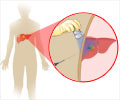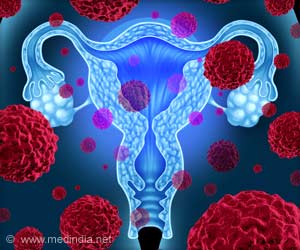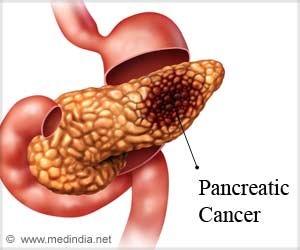The prognosis of patients with hepatocellular carcinoma accompanied by portal vein tumor thrombus is generally poor
The prognosis of patients with hepatocellular carcinoma accompanied by portal vein tumor thrombus is generally poor. Ten such patients treated by intra-arterial infusion of etoposide, carboplatin, epirubicin and pharmacokinetic modulating chemotherapy by 5-FU and tegafur/uracil are survival for 457.2 days, a one year survival rate was 70 percent. This combination chemotherapy may induce long-term survival and is an effective treatment in patients for HCC with PVTT.
A total of 10 consecutive patients with Stage IVA HCC accompanied by PVTT were studied prospectively to examine the efficacy of treatment by intra-arterial infusion of a chemotherapeutic agents consisting of etoposide, carboplatin, epirubicin and pharmacokinetic modulating chemotherapy by 5-FU and enteric-coated tegafur/uracil by Ishikawa, et al.The median survival time after the therapy was 457.2 days; the 1-year survival rate was 70 %. Adverse reactions were tolerable.
Although the prognosis of most patients with HCC by PVTT is poor, our combination chemotherapy may induce long-term survival and is an effective treatment and produced anti-tumor activity with tolerable adverse effects in patients for advanced HCC accompanied by PVTT.
Intra-arterial combination chemotherapy is useful and inducing long-term survival for advanced HCC accompanied by PVTT. Further prospective randomized clinical trials of chemotherapy for HCC with PVTT are needed.
Source-Eurekalert
VEN/C











